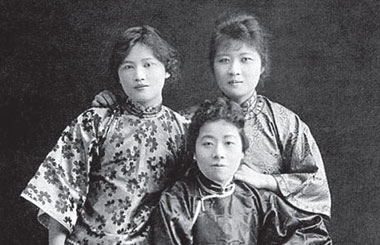Witness recalls trial of Japanese war criminals 60 years ago
Updated: 2016-06-10 07:31
(Xinhua)
|
|||||||||
SHENYANG - Guo Chunlai will never forget the day when he saw Japanese war criminals repent on a Chinese court 60 years ago.
"I filed lawsuit against these Japanese on behalf of my country and compatriots and I felt proud," the 91-year-old man, then a prosecutor, said on Thursday.
On June 9, 1956, eight Japanese stood open trials at a special military tribunal in Shenyang, capital of northeast China's Liaoning Province, including Suzuki Keiku.
Suzuki Keiku was assistant commander of the 28th Infantry Regiment and later lieutenant general and commander of the 117th Division in the Japanese army invading China during WWII, who gave orders of slaughtering more than 2,200 Chinese peasants, burning down thousands of houses and luring Chinese and Koreans to serve as "comfort women."
"It was the first time since the Opium War when Chinese people tried foreign invaders independently," Guo said.
Facts of the offense must be supported by five kinds of evidence: records of the trial, accounts of the defendants, witness' accounts, historical files and proof of other defendants.
"All the Japanese pleaded guilty, some repenting, even kneeling down and begging for death penalty," Guo said.
According to Li Minghua, deputy director of the State Archives Administration, there were 1,109 Japanese war criminals in custody in China between 1950 and 1956. Among them, 1,017 with minor offenses were exempted from prosecution and released.
The decision of giving open trials to 45 of the rest in special military tribunals under the Supreme People's Court was made in April, 1956.
Between July 1 and 20 that year, another 28 Japanese were tried in Shenyang, including Rokusashi Takebe who once served as chief of general affairs of the "Manchukuo," a Japanese-backed puppet state in Northeast China and Inner Mongolia between 1932 and 1945.
Nine others stood trials in Taiyuan, capital of north China's Shanxi province.
None of the 45 war criminals were sentenced to death. They received jail terms of eight to 10 years.
"The result was beyond their expectation," Guo said. "After they returned Japan, most of these people became advocators of Sino-Japanese friendship. Some spent the rest of their lives promoting peace."
Related Stories
China urges Japan not to interfere with 'comfort women' campaign 2016-06-07 19:23
Japan should not turn its eyes from reason for bombings 2016-05-31 08:23
Experts: Japan is adding to global dangers 2016-05-31 08:21
Wang urges Japan to cooperate on Asian economy 2016-05-26 18:01
Today's Top News
China lists first sovereign offshore RMB bond on LSE
British PM denounces Brexit's 'complete untruths'
47% of European businesses would expand in China
Xi urges Washington to boost trust
Council of Europe unveils security convention
Former PM warns of chaos in case of Brexit
Basic income plan rejected by Swiss voters
Eyeing the goal in European football
Hot Topics
Lunar probe , China growth forecasts, Emission rules get tougher, China seen through 'colored lens', International board,
Editor's Picks

|

|

|

|

|

|







